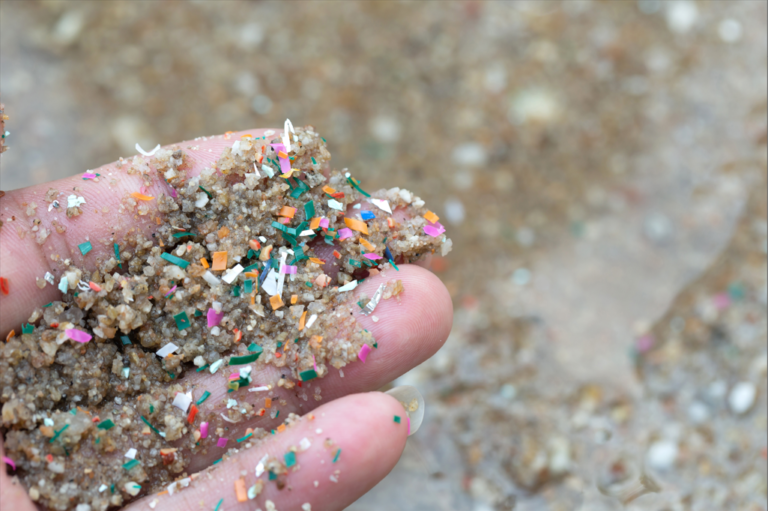Project Description
This PhD project aims to understand the mechanisms and controls on the transport and accumulation of microplastics (MP) in sedimentary systems.
Why is this important? Ingested plastic particles are documented in organisms throughout the freshwater, brackish and marine food-web, threatening biodiversity and possibly compromising human food security and health. Understanding MP dispersal in river, estuarine and coastal environments will inform policy in reducing plastic pollution – an area of future concern identified by the Scottish Government in their 2020 Marine Assessment. Additionally, 80% of marine plastic pollution is traced to land sources with rivers being the primary source. However, there are large uncertainties in river plastic export to the sea and the ultimate sink for MP in the deep ocean due to differences (of the order of tens of thousands of tons) between the modelled volume of plastic exiting river systems, and that found in the oceans (Cozar et al. 2014).
To address these issues we aim to determine key controls on MP transport and deposition in fluvial, estuarine and offshore environments in a traverse through a single sedimentary system to establish the onshore to offshore MP flux and develop predictive models for MP distribution and preservation. This requires an interdisciplinary approach that links field-based observations of MP distribution (Geosciences) with process-based laboratory flume experiments (Engineering) where transport and deposition of MP can be tracked to develop models which capture the underlying physical processes of MP accumulation and distribution.
Work will be undertaken in a single catchment from upland through estuarine to nearshore and offshore environments. The proposed study area, the Don river, estuary and adjacent offshore area, is ideal as it includes a wide range of land use types and population centres. Preliminary data (ongoing PhD with Hartley and Brackenridge) indicate a range of MP types present in both the water column and floodplain/channel settings from the Cairngorms to the Don estuary. An increase in MP concentration occurs in the estuary where biofilms develop on MPs and which are known to impact MP transport and accumulation (He et al. 2022).
A field-based sampling campaign will target specific depositional environments within the fluvial-ocean boundary to provide an estimate of base-level pollution in these areas. Samples will be analysed at the University of Aberdeen for: (1) composition (using XRF and smear slide analysis); (2) textural characteristics (sediment grainsize distribution using laser particle analyser); (3) sediment microplastic fraction; and (4) MP composition using Raman Spectroscopy.
We will use the field data to inform the design of analogue, process-based flume experiments, to be undertaken in the School of Engineering’s Fluid Mechanics Laboratory. Work will focus on (1) open– channel flume experiments to study entrainment and sedimentation transport of MPs under uni-directional currents and (2) wave flume experiments to investigate cross-shore transport and distribution of MPs under irregular wave action. Once specific hydrodynamic conditions for transport, deposition and resuspension of MPs have been established from experimental work, results will be calibrated against field data to build predictive models for MP distribution to feed into pollution mitigation strategies.
CANDIDATE BACKGROUND
Essential Skills:
- A BSc in Geoscience, Environmental Science or equivalent
- Strong numeracy and analytical skills are essential for statistical analysis of textural, biological and microplastic particle results.
- A strong attention to detail is essential.
- The candidate must be willing to travel for data collection.
Desirable Skills:
- Previous experience in lab techniques, or a proven ability to learn is desirable, however training in analytical sedimentology and microbiology lab techniques will be provided.
- The candidate should be willing to disseminate research results thorough conferences and academic publications. As such, strong communication skills are desirable.
- Strong initiative and planning skills.
Supervisors
Adrian HartleyPrimary Supervisor: | Profile: Adrian Hartley Email: a.hartley@abdn.ac.uk Institution: University of Aberdeen Department/School: School of Geosciences |
Andrew NewtonSecondary Supervisor: | Profile: Andrew Newton Email: A.Newton@qub.ac.uk Institution: Queen's University, Belfast Department/School: School of Natural and Built Environment |
Rachel BrackenridgeAdditional Supervisor: | Profile: Rachel Brackenridge Email: rachel.brackenridge@abdn.ac.uk Institution: University of Aberdeen Department/School: School of Geosciences |
Additional Supervisor: |
University of Aberdeen, School of Engineering Email: d.a.vandera@abdn.ac.uk
Dr. Mark Stewart University of Aberdeen, School of Engineering Email: mstewart@abdn.ac.uk |
References
Cózar et al. 2014. Proc Nat Ac Sci 111,10239-10244. doi.org/10.1073/pnas.1314705111
He et al. 2022. Journal of Hazardous Materials, 424, 127286 doi.org/10.1016/j.jhazmat.2021.127286
QUADRAT Themes
- biodiversity
- earth-systems
- environmental-management






















































